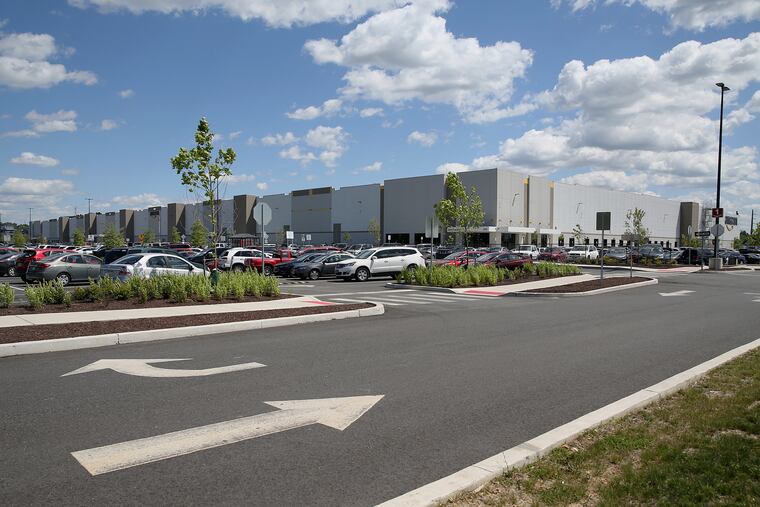Philly-area industrial leases approach pre-pandemic levels on e-commerce demand: Report
The Philadelphia region’s recovery outpaced that of the broader Northeast U.S. industrial market that also includes the outer boroughs of New York, North and Central Jersey, and the I-78/I-81 corridor through the Lehigh Valley

Industrial leasing in and around Philadelphia returned to near pre-pandemic levels last month, as companies snapped up space in the densely populated area to support growing online grocery operations and other e-commerce business, according to a study this week.
More than two million square feet of warehouse space was leased in Philadelphia and neighboring Southeast Pennsylvania and South Jersey counties in April, almost three quarters of the 2.65 million square feet leased in January and more than 86 times the 23,270 square feet leased in March, real estate services firm CBRE said in a research report Wednesday.
The Philadelphia region’s recovery outpaced that of the broader Northeast U.S. industrial market that also includes the outer boroughs of New York, North and Central Jersey, and the I-78/I-81 corridor through the Lehigh Valley, where April leasing volume was down 38% from January and just over twice as active as in March.
Most of the Philadelphia-area activity is concentrated in South Jersey, driven by web-based retailers, as well as traditional brick-and-mortar stores seeking to expand their e-commerce capacity, said CBRE, which declined to share details of specific leases.
“COVID-19 and its associated quarantines are creating new online consumers, which will further increase e-commerce’s share of total retail sales,” the study’s authors wrote. “Increasing demand for goods bought online, especially food, will fuel the need for modern distribution facilities at a pace much higher than the previous cycle.”
» READ MORE: PREIT gets $4.5M Paycheck Protection loan for small business and real-estate tax delays, as losses mount
Nationally, online grocery sales are on track to hit a record $6.6 billion this month, up 24% over April, according to a report Thursday by online retail consultancies Bricks Meets Click and Mercatus.
The firms estimated that 43 million U.S. households — about a third of the population — will have bought groceries online this month, up from 13.1 million in their last comparable study before the health crisis in August 2019.
“The online surge may level off slightly as various states strive to return to ‘normal,’” Mercatus chief executive Sylvain Perrier said in a release. However, “COVID-19 has accelerated online grocery adoption at a rate the industry hadn’t expected to see for years.”
But demand for space around population centers like the Philadelphia area isn’t being driven only by online grocers, said Kevin McGowan of McGowan Corporate Real Estate Advisors in Allentown.
» READ MORE: A big Philly apartment landlord is pursuing a new project despite coronavirus upheaval
Distributors of all sorts of merchandise are also expanding their warehouse footprints to hold inventory that can be quickly deployed if there are more supply disruptions, such as the recent ones that kept everything from toilet paper to hand sanitizer from reaching consumers, McGowan said.
“Tenants are getting bigger because they’re holding more safety stock,’” he said. “People are retooling their supply chains.”